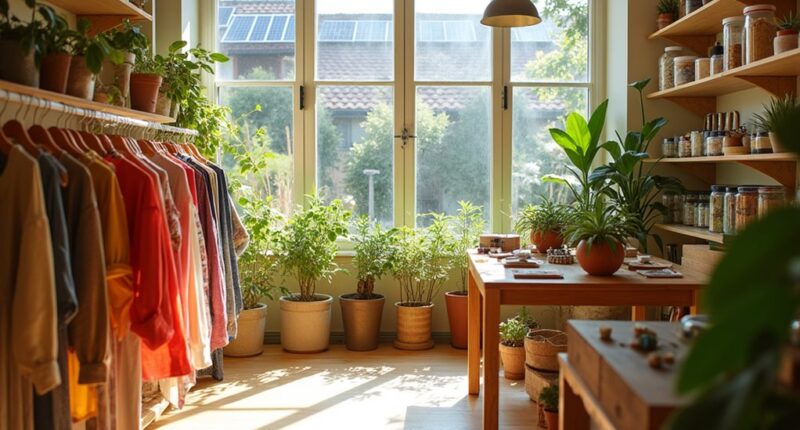As Earth Month rolls around, it’s easy to feel a bit like a kid in a candy store—except this time, the sweets are all about saving the planet. Retailers are stepping up their game with eco-friendly practices that would make even Mother Nature smile. From sustainable product offerings to energy conservation efforts, these businesses are proving that going green can be both trendy and effective.
Take, for instance, the magic of organic cotton, which uses 90% less water than its conventional cousin. Imagine that—fewer thirsty fields and happier plants! Retailers are also embracing recycled materials in their apparel and home goods, giving discarded items a second chance at life. Meanwhile, plant-based meat alternatives are popping up like daisies, lowering environmental impact while still satisfying taste buds. Many stores now offer local food options that reduce transportation emissions while supporting regional farmers.
Organic cotton uses 90% less water, while recycled materials and plant-based meats are revolutionizing sustainability in style!
And let’s not forget about eco-friendly cleaning products; they often come in reusable packaging, making them the superheroes of household chores. Kroger, for example, is actively engaging shoppers by allowing them to round up purchases to support the World Wildlife Fund during their month-long sustainability focus.
On the energy front, over 580 Target stores have installed rooftop solar panels, harnessing sunshine like it’s going out of style. Starbucks’ Greener Stores Framework has helped reduce energy consumption by 30% in many of its locations, showcasing how energy efficiency can be integrated into retail spaces. REI achieved carbon neutrality in 2020, while IKEA is on a mission to cut greenhouse gas emissions by 50% by 2030. Talk about ambitious goals!
Energy-efficient lighting and HVAC systems are also making waves, alongside electric vehicle charging stations at more than 200 Target locations.
Waste reduction initiatives are another vital piece of this sustainability puzzle. Car seat recycling programs and food waste composting efforts are diverting tons of waste from landfills. Retailers are even promoting reusable bags to kick plastic bags to the curb.
With circular economy programs that offer clothing recycling and refillable product options, these businesses are truly redefining what it means to be sustainable. Educational workshops, clear labeling, and partnerships with environmental organizations further engage customers in making eco-friendly choices.
It seems the tide is turning, with retailers leading the charge toward a greener future, one innovative practice at a time.









